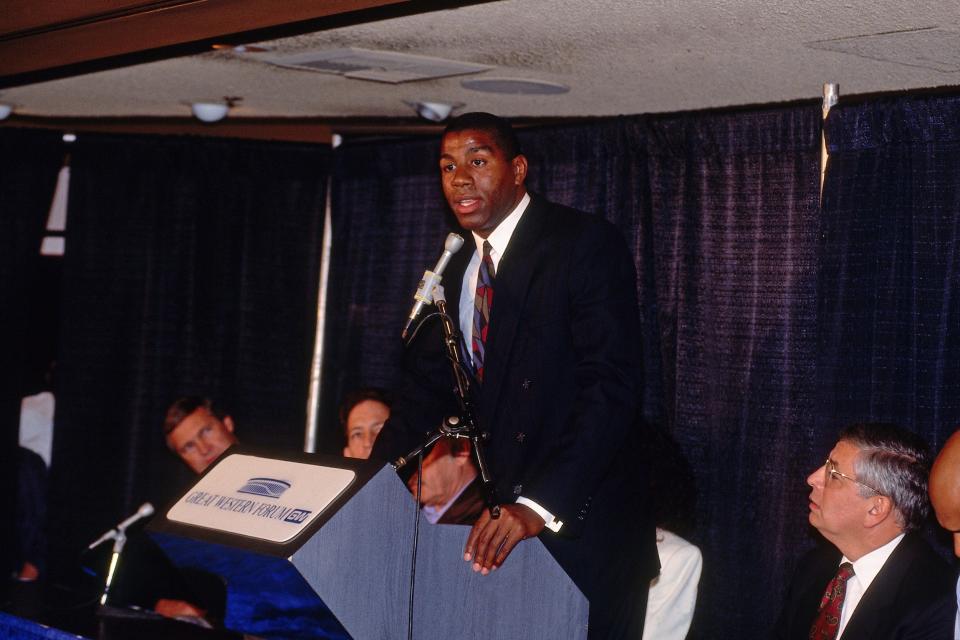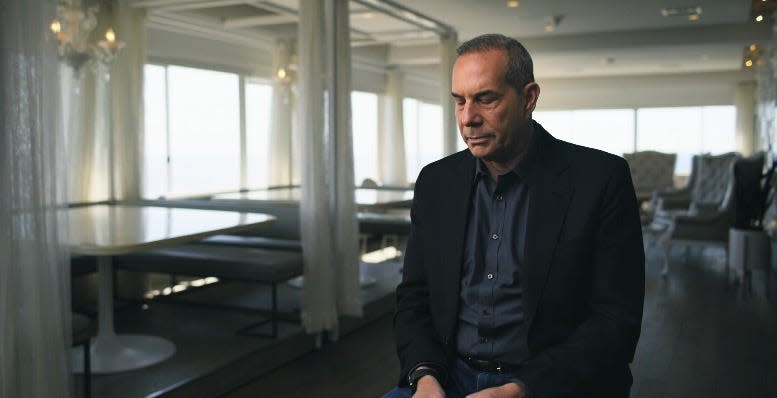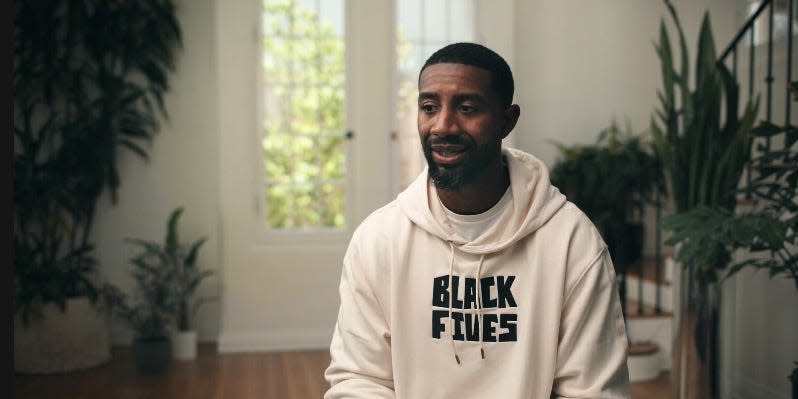Magic Johnson contemplated suicide after his HIV diagnosis when doctors thought he only had 2-3 years to live
- Oops!Something went wrong.Please try again later.

Magic Johnson's new docuseries on his life, "They Call Me Magic," is now available on Apple TV+.
One of the biggest storylines is his HIV diagnosis and how he dealt with what he thought was a death sentence.
Johnson's agent reveals that Magic contemplated suicide at the time as he thought he only had 2-3 years to live.
Magic Johnson's new docuseries on his life, "They Call Me Magic," is now airing on Apple TV+ and the show reveals how his HIV diagnosis affected the star in ways even worse than most people realized.
In 1991, a preseason physical with the Los Angeles Lakers revealed that Johnson had contracted HIV. A few weeks later, Johnson gave his famous press conference to reveal the diagnosis and announce his retirement from professional basketball.
At the time, HIV and AIDS were still misunderstood. Many still thought of AIDS as a "gay disease," and most considered it a death sentence.

While Magic helped change both perceptions, "They Call Me Magic" reveals that the virus almost killed him, and he even contemplated suicide.
After the diagnosis, Magic and his agent at the time, Lon Rosen, talk about a walk they took on the beach together.
"I was telling him, if anything happens, you make sure you take care of my family," Magic said.
Rosen added that Magic continued: "I guess I gotta stop playing basketball."
"At one point, [Magic] said, 'I don't know if I want to live, I might just end it, I might just ...'" Rosen said before trailing off.

Rosen also recalled a conversation he had with AIDS researcher Dr. David Ho that revealed the extent of the illness. Ho told Rosen that Earvin was "very ill" with a T-cell count of 203.
"At that point, you're on what's called 'the line,'" Rosen said. "At 200, you're at AIDS ... He talked about life expectancy of two, three years at the most."
Ho added that he was not optimistic that his T-cell count would protect him from infections for another five years.
"I thought I was facing death," Magic said. "I didn't sleep. I was just thinking about, Is this the last time [Cookie] is going to be in my arms?"
Magic's family also explained how dire his condition was at the time.
"Doctors are saying, spend as much time with him as you can because he's probably not going to live more than a few years," Andre Johnson said.

Ho and Dr. Anthony Fauci explain in the series that 1991 was a critical time for treating HIV and AIDS. They were getting better at treating the virus if it was caught early but didn't have the medicine yet to help more advanced patients.
Ho explains that what ultimately saved Johnson was using the treatments available at the time to protect his immune system and hold on until better medicine came along.
What was once a three-year prognosis has ultimately turned into a fulfilling 31 years, marked by some of Magic's proudest life achievements.
Read the original article on Insider

